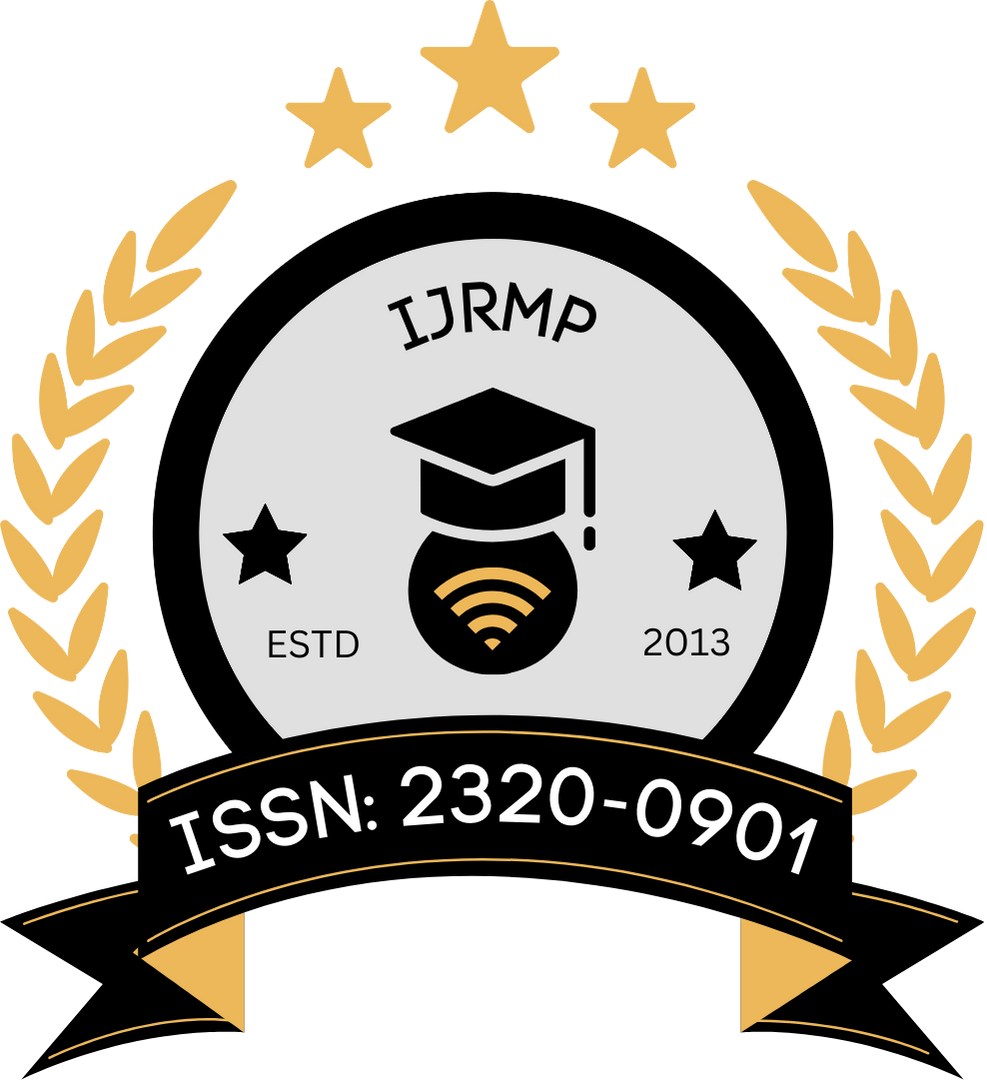![]()
DOI: https://doi.org/10.63345/ijrmp.v11.i12.2
Keerthi Verma
Andhra Pradesh, India
Abstract
The rapid evolution of digital healthcare has raised significant concerns regarding the security, privacy, and integrity of drug prescription data. Traditional prescription systems are often vulnerable to unauthorized access, fraud, and data tampering. Blockchain technology, with its decentralized architecture, immutable ledger, and robust cryptographic security, offers a promising solution to address these challenges. This manuscript explores the role of blockchain in enhancing the security and efficiency of digital drug prescriptions. It provides an overview of blockchain fundamentals, examines current vulnerabilities in digital prescription systems, and reviews existing literature up to 2021 to identify best practices and key challenges. The study further employs a statistical analysis comparing traditional versus blockchain-enabled systems and outlines a detailed methodology for implementing a blockchain solution in the digital prescription workflow. Results indicate that blockchain can significantly reduce prescription fraud and enhance data integrity while ensuring patient privacy. Despite challenges in scalability and interoperability with legacy systems, the benefits of blockchain integration in healthcare justify further exploration and pilot implementations. The findings of this research contribute to a deeper understanding of how blockchain can revolutionize digital drug prescriptions, ensuring secure, transparent, and reliable healthcare delivery.
Keywords
Blockchain, digital prescriptions, secure healthcare, drug prescription security, decentralized ledger
References
- https://www.google.com/url?sa=i&url=https%3A%2F%2Fwww.nature.com%2Farticles%2Fs41598-024-68529-x&psig=AOvVaw3545BoRJ1jVihs090uDGWc&ust=1741953844984000&source=images&cd=vfe&opi=89978449&ved=0CBQQjRxqFwoTCMDKro6Ch4wDFQAAAAAdAAAAABAE
- https://www.google.com/url?sa=i&url=https%3A%2F%2Finsights2techinfo.com%2Frole-of-blockchain-in-healthcare%2F&psig=AOvVaw1DYMwtXNkXD2txPCOI_ig8&ust=1741954230860000&source=images&cd=vfe&opi=89978449&ved=0CBQQjRxqFwoTCLjh166Dh4wDFQAAAAAdAAAAABAX
- Nakamoto, “Bitcoin: A Peer-to-Peer Electronic Cash System,” 2008.
- Crosby, P. Pattanayak, S. Verma, and V. Kalyanaraman, “Blockchain technology: Beyond bitcoin,” Applied Innovation Review, vol. 2, pp. 6–10, June 2016.
- Mettler, “Blockchain technology in healthcare: A comprehensive review and directions for future research,” Journal of Healthcare Informatics, vol. 7, no. 1, pp. 1–14, 2016.
- T. Kuo, H. E. Kim, and L. Ohno-Machado, “Blockchain distributed ledger technologies for biomedical and health care applications,” Journal of the American Medical Informatics Association, vol. 24, no. 6, pp. 1211–1220, 2017.
- Zhang and M. Van der Schaar, “A blockchain framework for healthcare applications: Leveraging smart contracts to secure digital drug prescriptions,” IEEE Access, vol. 5, pp. 23950–23965, 2018.
- Wang, W. Wang, and J. Zhu, “Blockchain technology for healthcare: State-of-the-art and future trends,” Future Generation Computer Systems, vol. 95, pp. 644–655, 2019.
- H. Nguyen, “Blockchain and AI in healthcare: Opportunities and challenges,” IEEE Journal of Biomedical and Health Informatics, vol. 23, no. 2, pp. 714–722, 2019.
- Agrawal, “Ensuring security in healthcare with blockchain: A study on digital drug prescriptions,” in Proc. IEEE International Conference on Health Informatics, 2019, pp. 122–127.
- K. Singh and P. Gupta, “A review on blockchain technology in digital healthcare systems,” in Proc. International Conference on Emerging Trends in Engineering and Technology, 2019, pp. 78–84.
- Zhou, “Securing electronic prescriptions using blockchain technology,” in Proc. IEEE Symposium on Security and Privacy Workshops, 2018, pp. 45–52.
- Patel, “Blockchain applications in healthcare: Improving the digital drug prescription process,” in Proc. IEEE International Conference on Blockchain Technology, 2020, pp. 30–37.
- Agarwal, “Enhancing healthcare data integrity with blockchain technology,” IEEE Transactions on Information Forensics and Security, vol. 15, pp. 1231–1242, 2020.
- Kumar, “The role of blockchain in healthcare: Opportunities and challenges,” Journal of Medical Systems, vol. 44, no. 2, pp. 1–9, 2020.
- Tan and H. Li, “Decentralized healthcare data management using blockchain: A secure digital prescription system,” in Proc. IEEE Global Communications Conference, 2020, pp. 1–6.
- M. García, “Smart contracts in healthcare: Automating digital prescription verification,” IEEE Access, vol. 8, pp. 19733–19743, 2020.
- Wang and Y. Chen, “Blockchain-based systems for secure healthcare data: A review and future perspectives,” Future Internet, vol. 11, no. 9, 2019.
- Verma and A. Kumar, “Blockchain for secure electronic health records: A case study on digital prescriptions,” in Proc. International Conference on Security, Privacy and Anonymity in Computation, Communication and Storage, 2021, pp. 112–118.
- R. Khan, “Implementation of blockchain technology in healthcare systems: A comparative analysis,” International Journal of Information Management, vol. 52, pp. 102057, 2020.
- Li and Y. Huang, “Digital healthcare systems and blockchain: Improving prescription security and reducing fraud,” Journal of Network and Computer Applications, vol. 136, pp. 30–38, 2019.
- S. Reddy, “Blockchain innovations in healthcare: Digital prescriptions, EHR, and beyond,” IEEE Access, vol. 8, pp. 156–165, 2021.
